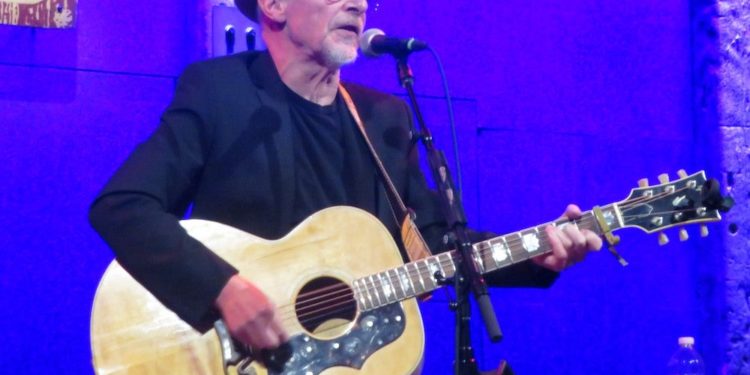The British rocker returns to TCAN on May 14.
Guitarist-vocalist-composer Graham Parker has never been easy to label, be it his style of music or his voice. At the age of 24, in the mid-1970s, he dove, headfirst, into the British rock scene with a résumé consisting pretty much of having been in a rock band when he was 13. But he wanted a career in music, was tired of pumping petrol at a gas station in Surrey, and headed to London with a bunch of original songs and hopes of meeting other musicians with similar thoughts.
Once there, and after placing an ad in Melody Maker magazine, his plans turned into a series of right time-right place scenarios. One musician led to another, then another. There was an introduction to a manager, more musicians, and finally a record producer (Nick Lowe). What resulted from all of this was the formation of Graham Parker and the Rumour and, in April 1976, the release of their first album, “Howlin’ Wind.”
They toured as an opening act, made more albums, toured as headliners, and raves came from fans and critics. His music? At first it was raw rock, the kind that was being heard in pubs. It soon morphed into what could be called a precursor to new wave and punk, with often angry social commentary in the lyrics and a pop sensibility in the melodies. There have also been hints of country and soul in his songs. His voice? That, too, was raw, and snarling. But its energy matched what he was singing about.
Parker really arrived with the release of “Squeezing Out Sparks” in 1979, featuring the song “Local Girls.” But he would eventually head out on his own, recording a string of solo albums, making time to concentrate on writing – in both novel and short story form – then continuing with more albums, one of the best being 2010’s “Imaginary Television.”
Parker’s return to TCAN will be a solo show – he usually does those accompanying himself with a Gibson J-200 acoustic guitar and a Fender Telecaster on different songs. In an interview a few years back, I asked him what it was like doing such songs as “Local Girls” and “Passion Is No Ordinary Word” without the band. He said, “To play the old ones solo brings out new life in them. It’s not so intense or as gnarly as the old versions, and you can realize how good the melodies are when you play solo.”
Need weekend plans?
The best events in the city, delivered to your inbox









